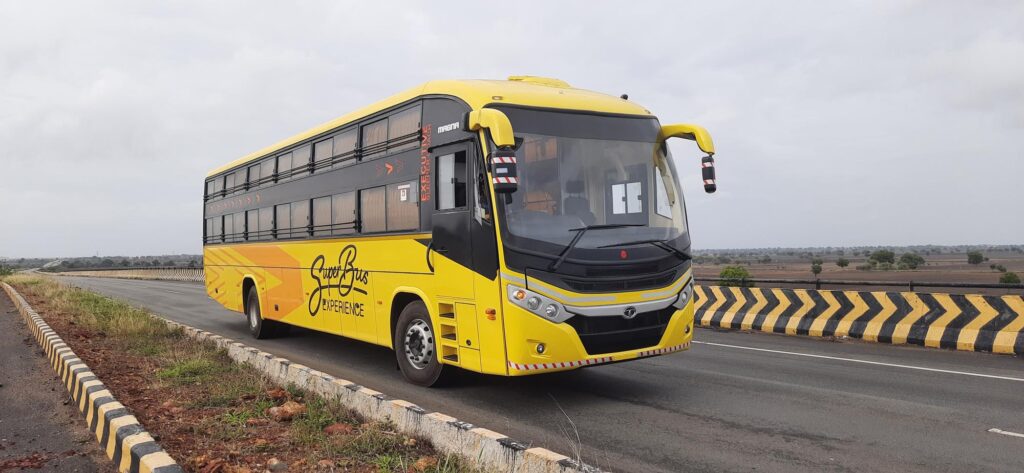
In this exclusive interview with Manoj Agarwala, redBus’s Chief Business Officer, N. Balasubramanian delves deep into the journey of redBus – from its inception to its current standing as a transformative force in the travel industry, shedding light on the remarkable evolution of redBus and its unwavering commitment to revolutionizing inter-city travel in India.
Transforming the Landscape of Inter-City Travel
Kickstarting the conversation, Manoj Agarwala shares, “Our journey has been nothing short of remarkable. Over the span of 17 years since our inception in 2007, redBus has been instrumental in bringing order and efficiency to an industry that was previously fragmented and disorganized. By leveraging cutting-edge technology and deep consumer insights, we have successfully addressed real-world challenges faced by both operators and passengers. It’s immensely gratifying to have played a pivotal role in transforming the inter-city bus travel landscape and establishing a strong foothold within the ecosystem.”
From its inception, redBus recognized the need to streamline the process of bus ticket booking, which was marred by inefficiencies and inconsistencies. By introducing a centralized platform that facilitated easy booking and reliable service, redBus revolutionized the way Indians travelled on buses. Through continuous innovation and a customer-centric approach, redBus not only addressed existing pain points but also anticipated future needs, staying ahead of the curve in an ever-evolving industry.

Empowering Partnerships and Market Penetration
The success of redBus can be attributed in part to its extensive network of partnerships. By collaborating with operators, agents, and distribution partners, redBus has been able to expand its reach and provide a seamless booking experience to travelers across India. These partnerships have not only facilitated the growth of redBus but have also contributed to the overall growth of the inter-city bus travel industry, driving efficiency and standardization.
“On a daily basis, redBus processes approximately 2.3 lakh seats, demonstrating the scale of our operations and the trust placed in our platform by millions of travelers,” Agarwala reveals. “In terms of partnerships, we have forged collaborations with over 16,000 to 20,000 active agents and more than 125 distribution partners.”
Addressing Industry Challenges
One of the key challenges faced by bus operators was the lack of visibility and predictability in seat occupancy. Through its innovative technology solutions, redBus addressed this challenge by providing operators with real-time data and insights into seat availability and demand. This not only helped operators optimize their fleet management but also enabled them to offer better services to passengers, leading to improved customer satisfaction and loyalty.

“For operators, redBus has been instrumental in providing invaluable visibility and predictability in seat liquidation,” notes Agarwala. “By leveraging advanced analytics and technology, we empower operators to optimize their fleet management and enhance operational efficiency.”
Standing Out in a Competitive Landscape
In a highly competitive market, redBus has managed to carve out a niche for itself by focusing on innovation and customer satisfaction. By constantly introducing new features and initiatives, such as bus tracking technology and quality-based positioning, redBus has been able to differentiate itself from its competitors and establish itself as a trusted brand in the industry. This relentless focus on innovation has not only helped redBus stay ahead of the curve but has also set new standards for the entire industry to follow.
“redBus distinguishes itself in the competitive landscape through its unwavering commitment to being a comprehensive two-sided platform that caters to the diverse needs of both operators and customers,” emphasizes Agarwala. “Unlike other bus ticket booking platforms, redBus has pioneered several innovative features and initiatives that significantly enhance the overall travel experience.”
Ensuring Trust Through Streamlined Payments
In addition to providing a seamless booking experience, redBus also ensures prompt and transparent payments to its partners. By maintaining clear and consistent payment schedules and leveraging technology to automate the payment process, redBus has been able to build trust and credibility with its operators. This commitment to transparency and reliability has been instrumental in strengthening redBus’s partnerships and driving mutual growth and success.
“Our commitment to prompt and transparent payments has been a cornerstone of our operator relationships, minimizing escalations and fostering mutual trust,” Agarwala affirms. “Transparency is maintained through a robust technology platform where our invoices resemble bank statements, detailing every aspect transparently down to the last PNR.”
Navigating Post-COVID Trends
The COVID-19 pandemic brought unprecedented challenges to the travel industry, forcing operators to adapt to new norms and regulations. However, as restrictions ease and travel resumes, the inter-city bus market has shown signs of strong recovery. redBus, recognizing the potential of electric vehicles to transform the industry, is actively exploring opportunities to collaborate with electric vehicle OEMs and integrate sustainable transportation solutions into its platform. By embracing new technologies and innovations, redBus aims to not only adapt to the changing landscape but also lead the industry towards a more sustainable and resilient future.
“The inter-city bus market has rebounded strongly post-COVID, signaling the beginning of an investment cycle,” observes Agarwala. “redBus is actively exploring opportunities with electric vehicle OEMs, recognizing the potential for EVs to transform the industry.”
Exploring Opportunities for Industry-wide Improvement
In addition to addressing existing challenges, redBus is also exploring opportunities to further improve the overall travel experience and drive industry-wide growth. By collaborating with government bodies and other stakeholders, redBus aims to enhance infrastructure and streamline operations, making travel more convenient and efficient for passengers. Furthermore, by exploring partnerships with electric vehicle OEMs, redBus is looking to address the growing demand for sustainable transportation solutions, paving the way for a greener and more environmentally friendly future.
“Collaborations with government bodies can enhance the passenger experience and streamline operations,” suggests Agarwala. “Exploring partnerships with electric vehicle OEMs to address the evolving needs of fleet operators is another avenue for growth and sustainability in the industry.”
Also, on the international arena, since expanding beyond Indian borders in 2015, redBus has expanded to eight countries, including Malaysia, Singapore, Peru, Colombia, Indonesia and Vietnam with its overseas operations growing steadily ever since.
Charting the Path Forward
“redBus focuses on strengthening its model through innovations in pricing strategies, improving customer experiences, and expanding into untapped segments like short routes and underserved demographics,” states Agarwala. “These are exciting times for redBus and the transport industry as a whole, with signs of recovery and growth after the challenges posed by the pandemic.”
As redBus looks towards the future, its focus remains on driving innovation, improving customer experiences, and expanding into new markets and segments. By continuously pushing the boundaries of what is possible and embracing new technologies and ideas, redBus aims to stay ahead of the curve and maintain its position as a leader in the travel industry. With a strong commitment to excellence and a dedication to customer satisfaction, redBus is well-positioned to continue revolutionizing the way Indians travel, shaping the future of inter-city travel in India for years to come.